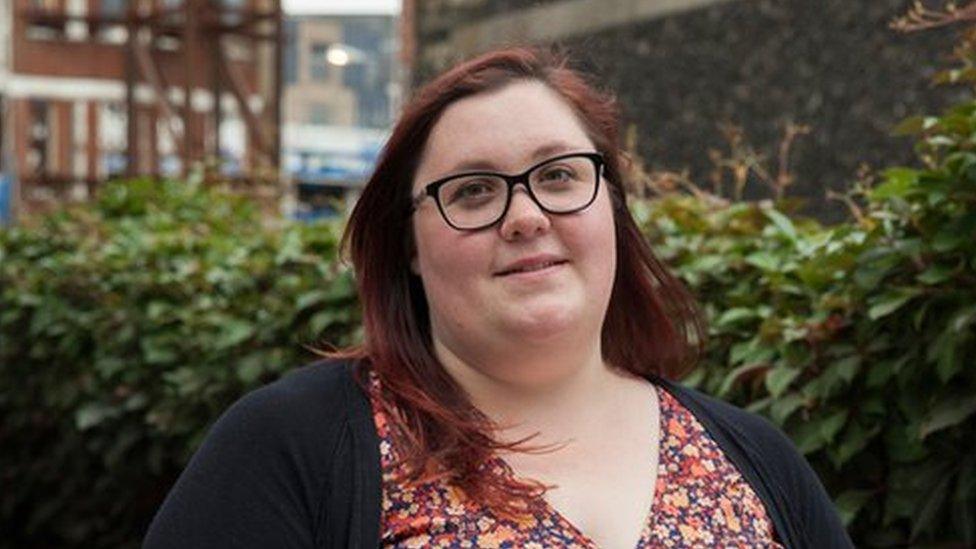Young people 'face debt epidemic'
- Published
- comments

Laura Davies and her partner and child live their lives according to a spreadsheet
Laura Davies, knows what it can be like to have to raid the overdraft to pay the childminder and borrow from family for accommodation.
Now 27, she and her partner still live according to a spreadsheet.
The Young Women's Trust says a quarter of young people in England and Wales have to borrow to make ends meet and are facing a "debt epidemic".
Ministers say their reforms are improving young people's incomes.
But the charity's survey of more than 4,000 18- to 30-year-olds suggests almost a quarter are in debt all the time and almost half have to borrow to make their cash last to the end of the month.
It indicates young women are worst affected, with:
23% of young men constantly in debt, compared with 25% of young women
45% of young men running out of cash each month, compared with 51% of young women
Using overdrafts to make ends meet was a fact of life for one in five of those surveyed, similar numbers borrowed from family, while almost as many ran up their credit cards.
One in 10 had used a payday loan company, rising to one in four among young parents.
Just over one in 10 said they skipped meals when they ran out of cash, though about 14% said they could work extra hours if they were short.
Laura, who became pregnant aged 19, during her first year at Bournemouth University, says she took a year out before continuing with her degree, balancing childcare, study and part-time work.
She and her partner were determined to manage on a mix of student loans, grants and part-time wages.
But they were often overdrawn at the end of the month, having to meet unavoidable expenses such as childcare, rent and food.
Their finances are still finely balanced, but they can now take on extra work if the car fails its MoT or they are hit with a rent rise, she says.
"We would rather work the extra hours and miss out on family time together to make sure we can make ends meet.
"We still don't have enough money to get married."
Young Women's Trust chief executive Dr Carole Easton said young people overwhelmingly wanted to work hard and be financially independent but many struggled with low pay and rising prices.
"Young women are more likely to be stuck on low pay and on zero-hours contracts, which mean they don't know how many hours they will work each month and whether they will earn enough to pay their bills.
"It can be particularly hard for young mums.
"In many cases, low pay means an hour's childcare can cost more than an hour's wages.
"As a result, many are failing to make ends meet and are falling into debt.
"Much more needs to be done to improve young people's prospects."
A government spokesman said a record number of women were in work, with youth unemployment at its lowest for 16 years.
"We are helping young people keep more of what they earn, by cutting taxes and raising the National Living Wage."
The spokesman said that since 2015 1.3 million people had been taken out of income tax altogether, while the higher National Living Wage had resulted in a ÂĢ1,400-a-year rise for low-paid workers since 2016.
The spokesman added a cap on the costs of payday loans had helped 760,000 borrowers save a total of ÂĢ150m a year since it was introduced in 2015.
Populus Data Solutions carried out the research in July.